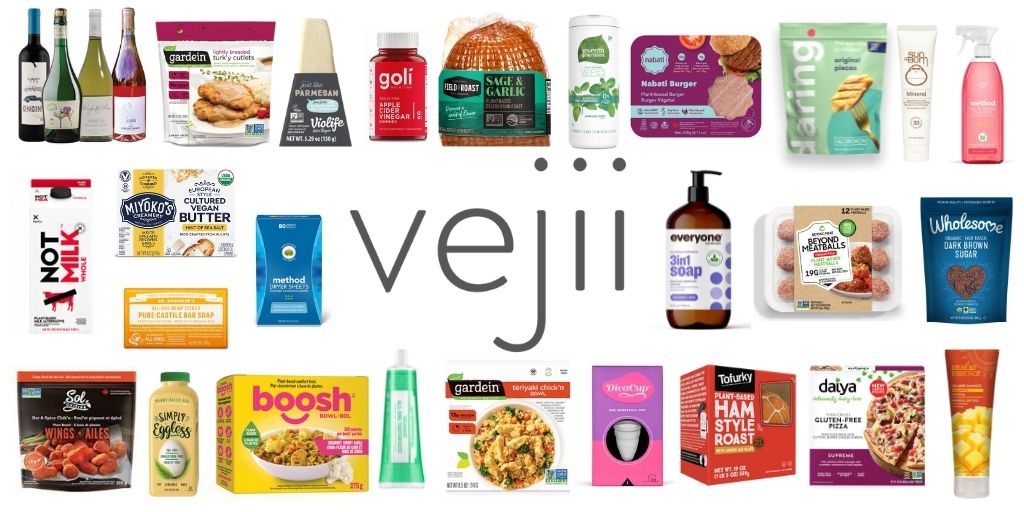Two trends came together during the pandemic that boosted the fortunes of plant-based retail startups like.
First, as consumers with the means to do so stayed home for much of 2020 and 2021, many turned to online food shopping and grocery delivery. Second, health and environmental concerns as well as shortages of some animal products in the early months led many to experiment with plant-based options.
Cue the rise of online vegan grocery retailers.
Some opted to join trails that had already been blazed, like online vegan grocer PlantX which last fall raised its profile when it launched as a third-party seller on Amazon marketplace, offering a range of vegan food, grocery and personal care items.
PlantX had already been growing, with additional plans to branch out into brick-and-mortar retail.
Meanwhile, some others started from scratch. Startups Vejii and PlantBelly opted to launch under their own banners and grow organically and, in Vejii’s case, also through acquisitions.
A hot topic
Vegan e-commerce was the topic of a panel at the Plant Based World Conference and Expo in New York City late last year, with executives from Veji, PlantBelly and online delivery service GoPuff sharing insights into the reasons the industry has grown so fast in recent years and where it is going next.
Plant-based brands trying to connect with consumers face challenges in brick-and-mortar stores where they can often get lost amid the competition, provided they can make it onto the shelves in the first place, PlantBelly’s David Benzaquen said during the panel.
He also noted that retailers were less willing to take risks on new products, a significant hurdle as brands flood the market with new vegan meat, dairy and egg alternatives.
Plant-based brands launched 825 new products in time for Veganuary promotions last year and they’re continuing to improve on existing products even as they create new ones.
Supply chain solutions
E-commerce and tech veterans Kory Zelickson and Darren Gill founded Vejii in November 2020, in the midst of the pandemic, to solve problems they saw in existing retail models.
The original idea to start an online vegan vitamin and supplement site quickly grew into a concept for an online multi-brand vegan grocery with a strategy to clear the hurdle of high shipping costs that can spur plant-curious online shoppers to abandon their carts.
Big brands like Impossible Foods and Beyond Meat could sell their own products online but shipping costs could be prohibitive and the selections limited, Gill said in a recent interview.
“Anyone can open an e-commerce store, but where the barrier comes in is in the cost of shipping,” Gill said in a recent interview. “That’s a challenge for Beyond or Impossible or whoever, because nobody’s going to like every SKU from every company.”
Brick-and-mortar grocers that offer delivery can also offer plant-based products, but consumers face the same limitations that they face when shopping in-person – limited selections and lag times in the availability of new products.
It’s no secret that grocery store shelf space is limited and winning a place on those shelves is competitive and often too expensive for start-up brands. E-commerce doesn’t come with those same constraints.
Vejii’s founders saw building a supply chain with temperature-controlled warehouses as the way to go. Creating a cold chain logistics network means British Columbia-based Vejii can help small local and regional brands win new customers across the US and Canada.
“We recognized that there are a number of small independent businesses and brands that are familiar in California, for instance, while unheard of in New York,” Gill said. “We wanted to have the Amazon of the vegan world.”
Today, Vejii’s network of five warehouses in the US and two in Canada store and ship products from more than 500 plant-based brands ranging from startups to big names.
Vejii has also grown through acquisitions, buying two of its biggest partners – online marketplace Vegan Essentials and B2B wholesaler Vegco.
One advantage brick-and-mortar retailers traditionally had, at least in pre-pandemic times, was the ability to offer in-store sampling to introduce shoppers to new products.
The acquisition of Vegco allows Vejii to offer brand partners value-added services like shipping samples to grocers and investors and include sample sizes of new products in shipments to online shoppers, Gill said.
The company has also added in-house marketing services for small brands that need help with digital marketing and social media messaging.
Small and medium-sized players have emerged as the innovators when it comes to developing new vegan products, Gill said, so it was important to make it easy for them to launch on Vejii.
“New brands and products are launching every day at this point and that’s a big opportunity for us,” Gill said.
Related stories:
- Key consumer motivations driving growth in plant-based foods
- Plant Based World Conference & Expo returns to New York
- Plant-based meat makers find ways to stand out in a growing field
If you liked this article, sign up for SmartBrief’s free email newsletter from the Consumer Brands Association. It’s among SmartBrief’s more than 250 industry-focused newsletters.
